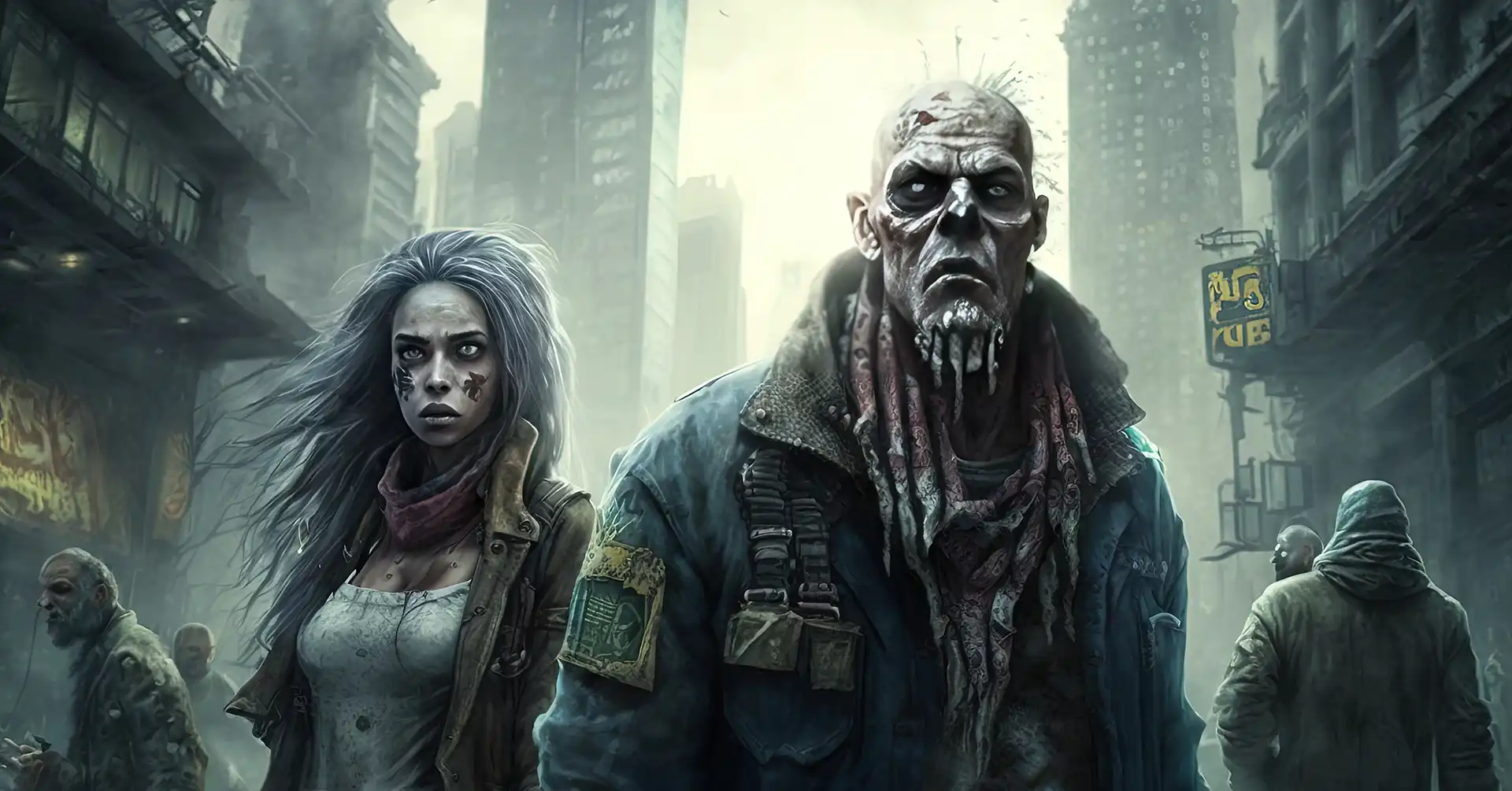A zombie, in popular culture, is typically portrayed as a reanimated corpse that exhibits a lethargic and cannibalistic behavior. These creatures are often depicted as having a relentless hunger for human flesh and a diminished capacity for rational thought. The concept of zombies has evolved over time, influenced by various cultural beliefs and modern media interpretations. In recent years, the idea of zombies has captured the imagination of many, fueling discussions and debates about their theoretical existence and scientific plausibility.
Historical Origins of Zombie Mythology
The origins of zombie mythology can be traced back to Haitian folklore and African spiritual beliefs. In Haiti, for instance, the term “Zombi” was used to describe a person who was believed to be brought back to life through supernatural means, often to serve as a mindless slave. These early depictions of zombies were rooted in cultural practices and rituals, illustrating the intersection of folklore and spirituality.
In the early 20th century, the concept of zombies began to gain traction in Western popular culture through literature and films. Works such as H.P. Lovecraft’s “Herbert West–Reanimator” and films like “White Zombie” (1932) contributed to the evolving image of zombies as undead beings with a thirst for human flesh.
The Science Behind Zombie Behavior
Neurological and Psychological Theories
Ever wondered what makes zombies tick? The fascination with zombie behavior isn’t just limited to movies and TV shows—it’s a topic that neuroscience and psychology delve into deeply. Researchers explore how certain neurological conditions or psychological factors could potentially mirror the characteristics of zombie-like behavior. From studies on altered brain functions to experiments in behavior modification, scientists aim to uncover the real-world factors that might contribute to zombie-like actions.
One prevailing theory suggests that under extreme stress or certain physiological conditions, individuals might exhibit behaviors akin to those attributed to zombies. These behaviors could include reduced cognitive function, heightened aggression, and impaired communication skills—traits often associated with the undead. By studying these conditions, scientists hope to better understand the complexities of human behavior and how they might relate to hypothetical scenarios involving zombies.
Real-Life Cases of Altered Behavior
Are zombies real? While the concept of reanimated corpses may remain firmly in the realm of fiction, there are intriguing cases of altered behavior that have captured scientific attention. From rare neurological disorders causing unusual movements and expressions to psychological conditions triggering irrational aggression, these instances offer glimpses into how extreme circumstances can affect human behavior.
In recent years, documented cases of individuals exhibiting zombie-like traits have sparked debates among researchers and medical professionals. These cases highlight the importance of understanding the underlying causes behind such behaviors and developing appropriate treatments or interventions. While these examples may not represent full-blown zombie scenarios, they underscore the potential complexities of human behavior under specific conditions.
Infectious Diseases and Zombie Outbreaks
Could a Zombie Virus Be Real?
The idea of a zombie virus spreading across the population may seem like the stuff of nightmares, but epidemiologists and virologists have contemplated the possibility. While there’s no known virus that could reanimate the dead, scientific discussions often revolve around how a highly contagious pathogen could alter human behavior in dramatic ways.
Research into infectious diseases that affect the brain or central nervous system provides insights into how a hypothetical zombie virus might hypothetically spread. These studies delve into transmission routes, incubation periods, and the potential for rapid global dissemination—considerations that draw eerie parallels to fictional zombie outbreaks depicted in popular culture.
Epidemiological Insights and Hypothetical Scenarios
Are zombies real? In epidemiology, the study of how diseases spread and impact populations, hypothetical scenarios involving zombie-like outbreaks serve as intriguing case studies. Epidemiologists analyze factors such as population density, mobility patterns, and healthcare infrastructure to model how a contagious agent might propagate and escalate into a widespread crisis.
Through these simulations, experts gain valuable insights into emergency response strategies, vaccine development prioritization, and public health messaging during hypothetical zombie outbreaks. While the scenarios themselves are fictional, the methodologies and insights derived from such studies contribute to preparedness efforts for real-world infectious disease threats.
Biomechanics of the Undead
Could Zombies Realistically Move?
When it comes to the biomechanics of zombies, one pressing question on everyone’s mind is: could zombies realistically move? The concept of zombie locomotion has fascinated both scientists and horror enthusiasts alike. In popular culture, zombies are often depicted as slow, lumbering creatures with impaired motor skills. However, real-world analysis suggests that such movement would be severely hindered by rigor mortis and decay. Nevertheless, theoretical models and hypothetical scenarios continue to explore the possibility of more agile zombie behavior, which adds to the intrigue surrounding the question: are zombies real?
Zombie Apocalypse Preparedness
Practical Tips for Survival
In the unlikely event of a zombie apocalypse, being prepared could mean the difference between life and becoming one of the undead. Practical tips for survival include establishing safe zones, fortifying your home, and having a reliable communication plan in place. Additionally, knowing basic self-defense techniques and understanding zombie behavior patterns can greatly increase your chances of survival. It’s also crucial to stock up on essential supplies such as non-perishable food, water purification systems, first aid kits, and sturdy clothing. Are zombies real? While the likelihood is slim, being prepared for any emergency ensures you’re ready for whatever comes your way.
Recommended Supplies and Strategies
Recommended supplies for surviving a zombie apocalypse include:
- Food and Water: Stock up on non-perishable items like canned goods, energy bars, and water bottles.
- Medical Supplies: Ensure you have a comprehensive first aid kit with bandages, antiseptics, and medications.
- Tools and Weapons: Have multipurpose tools, flashlights, and defensive weapons like baseball bats or pepper spray.
- Communication: Keep a battery-powered radio and spare batteries for staying informed about developments.
- Sanitation and Hygiene: Pack toiletries, garbage bags, and hygiene products to maintain cleanliness.
Conclusion
In conclusion, the allure of zombies persists as a captivating blend of fear and fascination in American culture. While the concept of zombies sparks curiosity about the limits of scientific possibility and the resilience of societal structures in the face of catastrophe, the reality remains clear: zombies, as depicted in movies and folklore, are purely fictional. Yet, exploring the hypothetical scenarios of zombie outbreaks provides a unique lens through which to examine societal dynamics, preparedness strategies, and ethical dilemmas. Ultimately, the enduring popularity of zombies reflects our collective interest in exploring the unknown and preparing for the unexpected, even if the undead themselves are confined to the realm of imagination.
Frequently Asked Questions (FAQ)
What would cause a zombie outbreak?
A zombie outbreak could hypothetically stem from various sources, often depicted in fiction as a result of a mutated virus, experimental toxins, or even a supernatural event. While scientifically improbable, the concept captures imaginations due to its blend of horror and intrigue.
How would authorities respond to a zombie threat?
Authorities would likely mobilize emergency services and law enforcement agencies to contain and neutralize any potential threat posed by a zombie outbreak. Coordination would involve quarantine measures, medical research teams, and possibly military intervention to protect civilians and prevent the spread of contagion.
Can zombies really exist?
The existence of zombies as portrayed in popular culture is purely speculative and fictional. Scientifically speaking, there is no evidence to support the existence of reanimated corpses with a hunger for human flesh. The fascination with zombies persists in entertainment and folklore, but they remain a product of imagination rather than reality.
Also Read:
MW3 Multiplayer Trailer: The Much-Awaited Gaming Trailer is Here!






